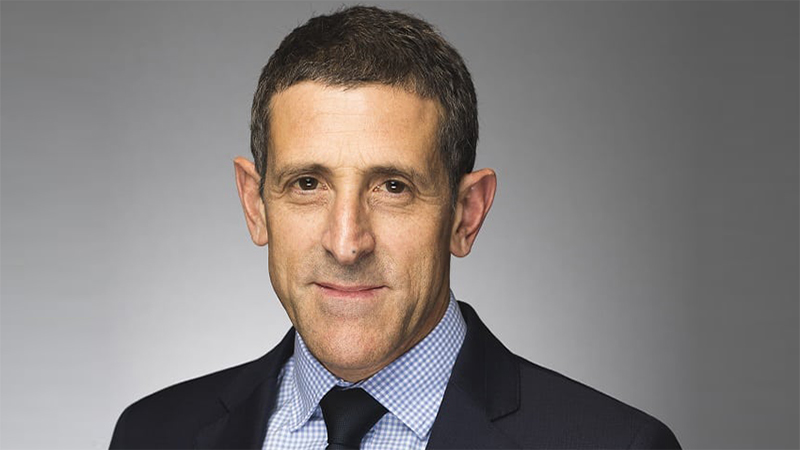By Mike Coop, CIO of Morningstar Wealth
The year of the Dragon has started with investors split between those abandoning Chinese equities and those seeing contrarian opportunities.
This sums up the key questions facing investors after a three-year bear market in the world’s second largest economy – will the future be like the past? And is China simply uninvestible because of its political regime?
Let’s start with the first of these questions – the outlook.
Hero to zero
Here, the challenge is to set aside behavioural biases and construct realistic potential outcomes based on the data, then estimate how much weight to put on each scenario. This starts by recognising that our behavioural instinct is to give way too much importance to recent experiences – in this case disappointment – when thinking about what could happen.
The evidence from our Morningstar flows data is that these biases lead investors to make bad timing decisions that detract value. In our latest ‘mind the gap’ study, returns were lower when flows were taken into account versus the underlying fund return.
To put the facts about China today into perspective, we need to look back at the last 3 years. In early 2021, China was a market darling and clocking up two years of high returns. IMF studies show the dramatic rise in the number and value of listed Chinese companies. By the end of 2020, China comprised approximately 40% of Global Emerging Market indices and foreign ownership at between 3.5% to 4% – both historic peak levels.
See also: Shot Tower Capital confirms Hipgnosis valuation amid damning due diligence report
Investors overlooked many of today’s concerns that were evident back then: residential property overbuilding, US trade restrictions, high debt levels, and periodic pendulum swings in government policy from reigning in the private sector, to supporting its growth.
Since then, economic growth has disappointed, impacted by stringent COVID lockdowns, the drop in inbound investment, and the fall-out from the residential property boom and bust. Corporate profits were also hit by the “common prosperity” regulatory crackdown in late 2021 that added severe restrictions on gaming companies and private education companies, and sanctioned high profile powerful corporate executives. Foreign investors swung from bulls in 2021 to bears by 2023, dramatically scaling back their exposure.
A changing future
So where has three years of a bear market left us today? Well, here are five current facts that paint a very different picture from when the market peaked.
First, profit margins are at the low end of their historic range and rising. Second, valuation measures are at the low end of their historic ranges too. Third, measures of sentiment point toward pessimism, including profits expectations, net flows and positioning. Fourth, government micro economic and macroeconomic policies have eased to be more supportive of the economy and companies in general, including gaming. Fifth, the market composition has changed.
Many major companies are dominant franchises with low levels of debt, while the banking sector and property development sectors are much smaller parts of the market than in the past.
These five factors tell us that China is a pariah market, one that has priced in greater risks, weaker growth and discounted any eventual cyclical recovery. These are typically the hallmarks of a good investment opportunity.
By comparison most other equity markets are trading at levels at or above fair value, and there are increasing signs of extreme optimism in several leading US stock market companies.
Is authoritarianism a concern?
That still leaves the issue of how much to allocate to an increasingly totalitarian, communist state. Sizing exposure comes down to both the margin of safety embedded in current share prices, as well the degree of uncertainty – in other words randomness that makes it virtually impossible to estimate probabilities.
China’s most striking difference is its one-party state, which under Xi Jinping has taken a greater degree of control over everything, including more entrepreneurial listed companies.
See also: Home Reit sells 63 more properties for £6.1m
For this reason, we believe fair value is lower vs comparable assets in countries which do have independent rule of law, strong shareholder rights, and greater predictability and transparency of government regulation.
It is also why portfolio exposure should be considerably lower, even when opportunities are brightest. We thus constrain our direct exposure to China and hold less than we would for many other large markets that are similarly attractive.
Should China exposure be zero?
Well, around the world all governments have become far more interventionist. Covid ushered in much larger government spending and regulation. Policies to reduce emissions and incentivise onshoring, such as the US’ Inflation Reduction Act and Chips and Science Act, have had huge impacts on businesses, as does the rise in military spending.
In other words, no matter which equity market you invest in, the fate of companies is heavily influenced by governments via fiscal policy, monetary policy, regulation, trade, the military and direct government investment. A productive and active private sector is recognised as playing a key role in supporting political stability via employment and the shift to high productivity industries, where the private sector has been the key driver.
So, we do not see a convincing case for excluding Chinese equities from a well-diversified portfolio, given the quality of leading listed private companies and their strategic importance for China.
The real problem has been that investors closed their eyes to all the known risks and invested too much at peak prices. The painful ride has taken its toll, but today these risks are priced-in and an appropriately sized exposure is warranted.
In fact, our own research shows that prospective risk adjusted returns are higher than usual in absolute terms and vs other markets, so we hold more than usual in our Morningstar multi asset funds and managed portfolios.
See also: Woodford investors to receive initial £185.7m distribution










